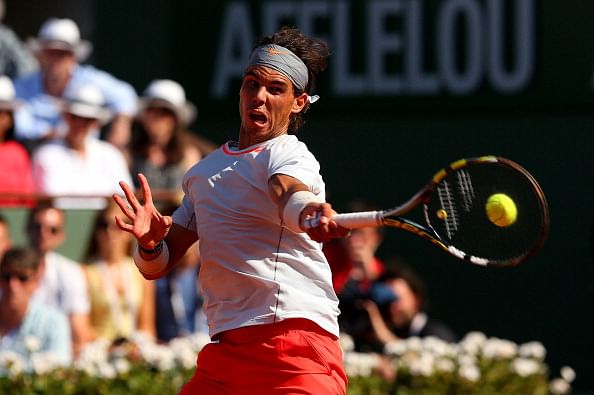
Tennis: It's all in the mind

We know in sports, much of the game is won and lost in the minds of the sportsmen – the proportions vary from sport to sport. We could possibly picture chess on one end of the spectrum and sumo wrestling on the other. But something of particular interest to me is the sport closest to my heart – tennis. How much of tennis is actually a mind game?
In recent years, tennis has been increasingly criticized for rewarding brute force over skill / stroke play. But this increased level of competition (at least in men’s tennis) over the last decade has also tested the mental strength of the players like never before. History of tennis is laden with examples of legends who have won many a match even when playing at 30%-40% of their potential. But something of overriding importance is the mental strength– the strength to hold nerve on big points and the ability to step on the pedal at crucial stages of the game.
Watching Rafael Nadal beat Novak Djokovic in five sets on Friday at the semifinals of the French Open 2013 makes me ponder on the relative psychological advantage. Did Nadal’s confidence to close out the sixteenth game of the fifth and final set come from the fact that the game was played on clay? Keeping the skill-set and the physical conditions constant, would Nadal’s response be different if the same game were to be played out at Rod Laver’s Arena?
We all remember Djokovic’s glorious run in 2011 when he had a 6-0 head-to-head against Rafa, all of them in finals that included two Grand Slam finals. The Spaniard has since struggled to beat the Serbian in many a close contests – the epitome being the gruelling 5 hour 53 minutes Australian Open final in 2012. Was Friday’s result different simply because Nadal wasn’t haunted by the ghosts of his previous losses and in fact, to the contrary, can derive a great deal of confidence from the fact that he is the most successful player at Roland Garros and has ruled the courts like none before?
The Federer-Nadal duel has had its share of mind games as well. Contrary to what most people would expect, the locker room at Wimbledon Centre Court is quite small. Imagine the setting before the start of play at Wimbledon final between Rafa and Roger. The calm and composed Swiss sharing the small locker room with a hyperactive Spaniard running around the room like a raging bull is a testament to the ability of the players to lock their mind from the outside world.
The golden era of men’s tennis has indeed changed the contours of mental toughness in the sport.